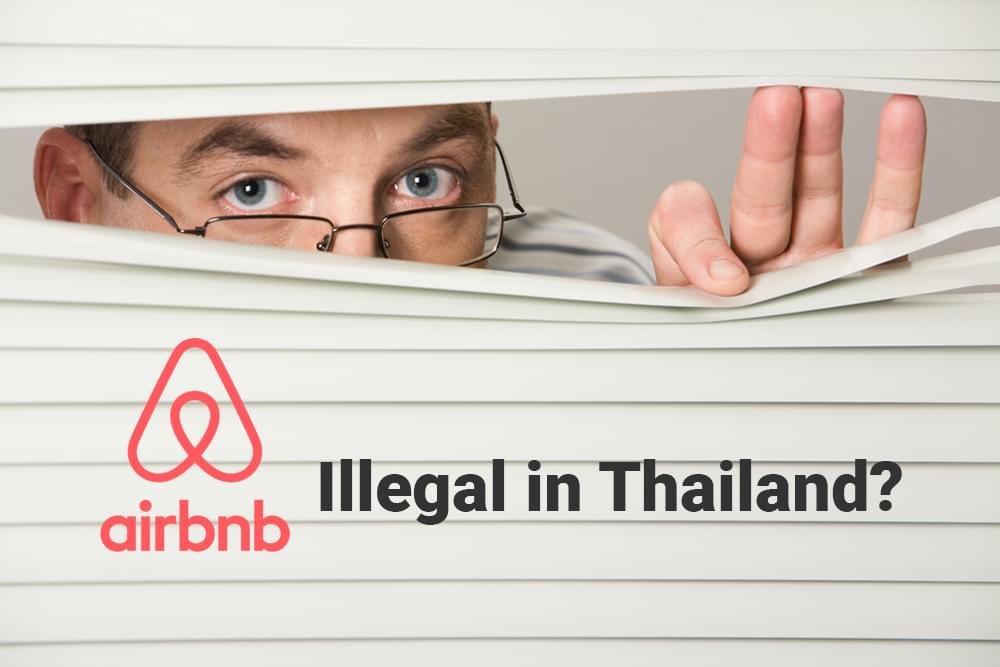
Should Airbnb Hosts and Guests be worried?
A frequently asked question, that ALWAYS comes up!
Is Airbnb illegal in Thailand?
To keep it simple, yes it’s illegal to Airbnb properties in Thailand.
Property owners also known as Airbnb “Hosts”, can be prosecuted if they rent their properties on a nightly or weekly basis.
That’s the short answer, however the “whole story” is a little more complicated!
Firstly Airbnb Thailand, remains operational and visitors from around the world are still able to search and find holiday homes on the online marketplace.
Interestingly, a quick browse on Airbnb in popular holiday destinations such as Bangkok, Phuket and Pattaya, will reveal that many hosts remain undeterred and are still advertising condos on the short-let platform.
How is an illegal service, hiding in plain sight and still doing business?
Why are Thailand’s hosts still “risking it”?
For those interested, this article will explore the details of the raging “Airbnb Issue” in Thailand!
Huge Market Opportunity and Outdated Laws
Airbnb is a hospitality giant, with a presence in over 100,000+ cities and 191 countries and regions. The tech unicorn’s disruptive model of empowering private landlords to host holidaymakers and business travellers, has effectively transformed a digital platform into the “World’s Biggest Hotel”!
The Airbnb model offers a turnkey short let solution, allowing property owners to simply advertise their website and manage bookings. Combine this simplicity, with Thailand’s booming tourism market (38.27 million tourists visited Thailand in 2018) and the Airbnb proposition becomes incredibly lucrative:
Hosts are reportedly generating above average rental yields (Compared to traditional long-term rentals) from their properties; also, since these short term rentals are “under the radar”, in most cases hosts pay no income tax on their Airbnb income.
However, this simple model creates direct competition with licensed hotels, guesthouses and hostels. Effectively pitting private landlords in direct opposition with the Thai Government and the Thai Hotel Association (THA). The arguments on both sides of the spectrum, are straight forward:
The Hotel Industry and the Thai Government have voiced concerns that platforms like Airbnb could disrupt and cannibalize the hospitality market!
Whereas:
Landlords are usually defiant, claiming that they have the right to enjoy the benefits of their property.

Previously, what further complicated the debate was the fact Thai Laws are ill-equipped to deal with a new-age tech platform like Airbnb. The Pro-Airbnb and Anti-Airbnb camps often tussled over the interpretation of the law and the legality of activities conducted by Airbnb hosts.
Anti-Airbnb Legal Interpretation:
1. Hotel Act Infringements
Airbnb hosts renting to guests on a nightly or weekly rate, are in effect operating as an unlicensed hotel. This absence of a hotel permit is therefore an infringement of the rules and regulations of the Hotel Act.
2. Condominium Act Infringements
The Condominium Act states that commercial activities can only be conducted in the designated commercial spaces, within the condominium building (If any). This regulation is in place to ensure peaceful cohabitation of residents; therefore, hosting guests, could disrupt the condominium’s community and lifestyle.
Pro-Airbnb Legal Interpretation:
1. Hotel Act Limitations
Airbnb Hosts are often quick to mention that the “Hotel Act” stipulates that only business operations with “more than 4 rooms” need to comply with this law.
2. Thai Civil and Commercial Code
Landlord also point out that according to the Thai commercial code, they are entitled to the benefits and fruits of property ownership. That is provided that their commercial activities, does not disrupt co-owners and residents of the residential building.
It’s Decided, Case Closed, Airbnb is Illegal.
So how did Airbnb hosting go from a confusing legal jumble to a definite “illegal status”?
In May 2018, a court ruling in Hua Hin convicted two hosts of violating the Hotel Act of 2004; they were charged for renting their condos on a daily and weekly basis in Wan Vayla Condo. The offenders were both charged with a light fine of between 10-15,000 THB for their infringements.
However, this verdict has sent legal shockwaves throughout Thailand setting legal precedent in Thai Courts for any future Airbnb cases.
Violating the Hotel Act 2004: What are the Penalties and Risks?
According to the Khaosod English Website:
“A one-year jail term and a fine not exceeding B20,000…”
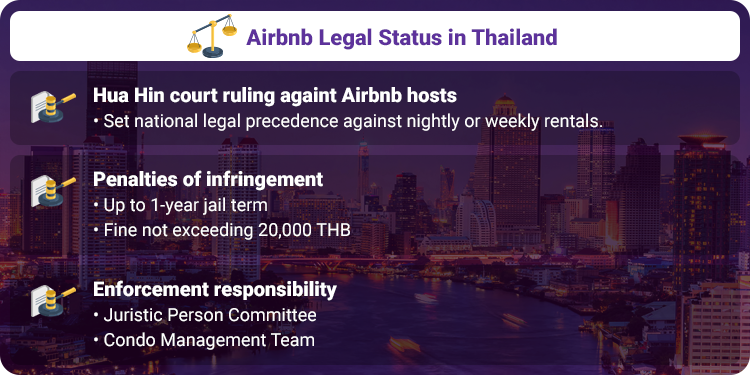
While first time offenders are unlikely to receive a jail term, hosts that are tempted to risk it, need to note that convicted offenders will have a permanent criminal record.
Paper Tiger: The Realities of Enforcement
Despite the risk of imprisonment, fines and potential criminal records, there are still hosts willing to defy the law. Most of these offenders, take comfort in the anonymous nature of hosting guests and the fact that thousands of hosts are still operating in plain sight.
In a marketplace like Bangkok, with hundreds of thousands of daily travellers and literally thousands of condos, hosts are essentially “needles in a haystack” for the Thai authorities. There is a general feeling amongst offending property owners that there is “strength in numbers”, as it is not practical for Thai Police or local authorities to investigate and prosecute each and every offender.
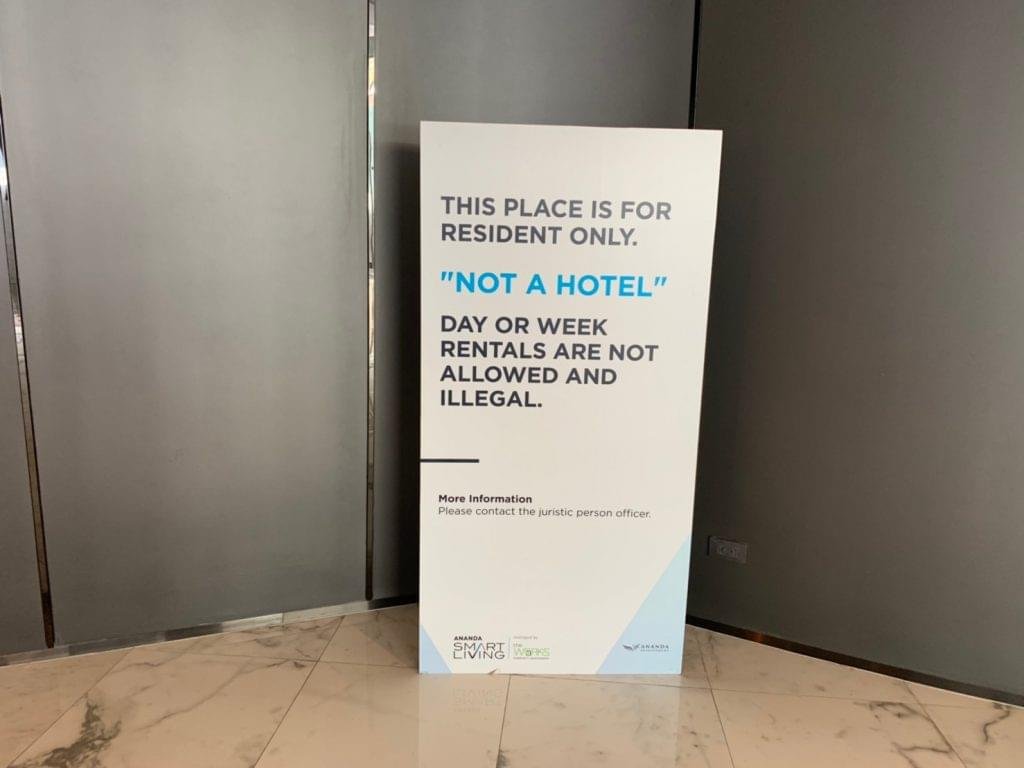
Some condos are taking a tough stance on short-lets!
The responsibilities of self-policing will come down to the juristic person committee and condo management teams. With some condominiums taking a hardline ban against Airbnb hosts, while other residential buildings passively ignore the commercial practice.
This strange disconnect, between the legal and practical realities are likely to continue in the foreseeable future!
Quick Legal Disclaimer: This article is just an observer’s overview of Airbnb’s legal status in Thailand, it does not represent the opinion of Fresh Property’s views on the issue. Also, this information should not be used as legal advice and individuals affected by these laws should consult with a qualified law firm.
Fresh Property is a full-scope real estate agency providing consultancy, sales, rental and property management services. If you are looking to rent long-term in Bangkok, you can browse our collection of rental homes or alternatively contact us!

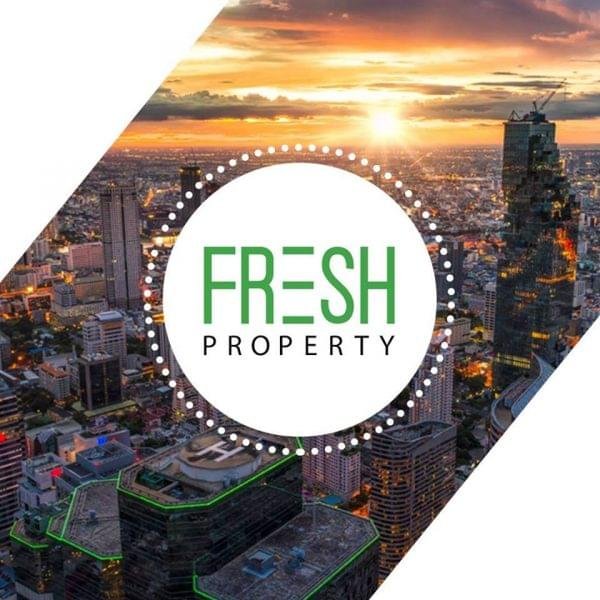
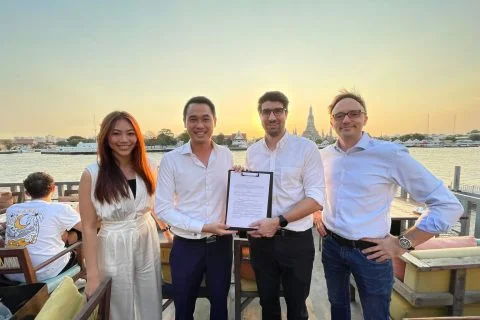
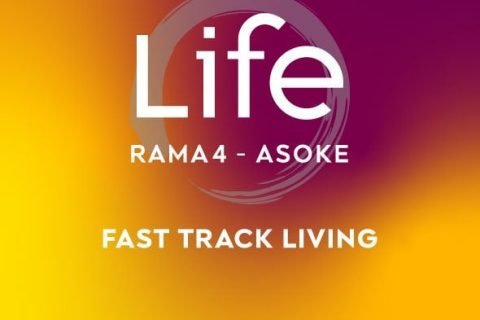
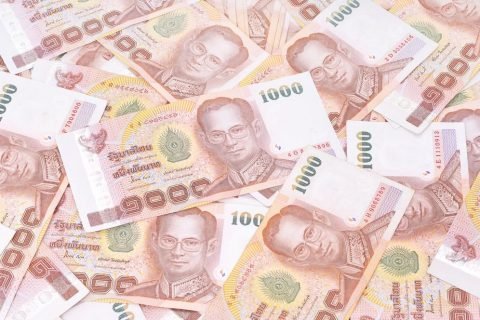
rebel says:
If you are a condo owner living in your own flat, report any Airbnb rentals. They are a security risk and a damn nuisance to residents.
Kamil Krystman says:
It is all very sad. Is it possible to rent airbnb for 1 month? is it llegal?
Daniel says:
@rebel
you’re just an ***, technology changes the way we do things, if you don’t like it just go back to the middle age.
dev says:
please keep it civil 🙂
Vlad P says:
[removed due to expletives]